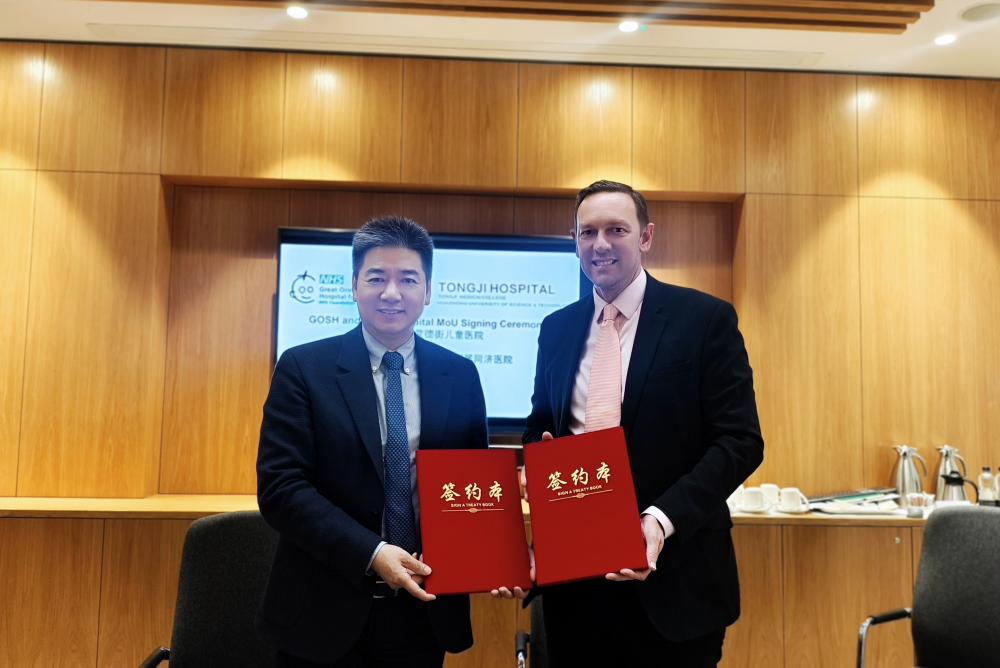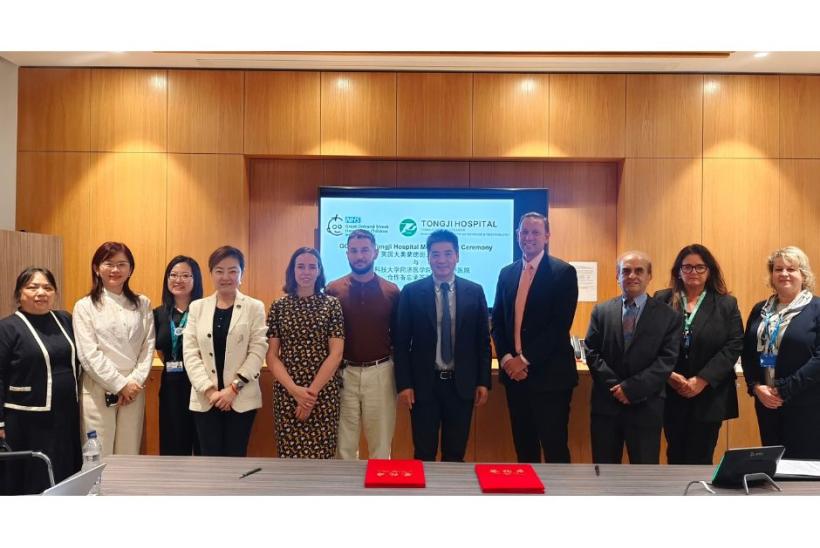GOSH Signs MoU with Tongji Hospital to Advance Global Collaboration in Rare and Complex Paediatric Diseases
On 13 November, Great Ormond Street Hospital for Children (GOSH) signed a Memorandum of Understanding (MoU) with Tongji Hospital of Tongji Medical College, Huazhong University of Science and Technology (HUST), marking a major step forward in international cooperation to improve the diagnosis, treatment and research of paediatric rare and complex diseases.

The signing ceremony took place during a visit by a senior delegation from Tongji Hospital to London. The new partnership reflects both institutions shared commitment to advancing clinical excellence, accelerating medical innovation and strengthening global knowledge exchange in paediatric medicine.
Prior to the signing, experts from both hospitals took part in in-depth discussions. Leaders from GOSH’s International & Private Care team and the GOSH Learning Academy introduced the hospital, international patient services, global partnerships and education programmes. GOSH consultants, including Prof Mehul Dattani, Dr Robert Chiesa and Dr Maaike Kusters, delivered academic presentations on advances in paediatric endocrinology, gene-edited CAR-T therapy for paediatric leukaemia and innovation using artificial intelligence.
Representing Tongji Hospital, Professor Luo Xiaoping, Director of the Centre for Rare Diseases, outlined Tongji’s achievements in building a regional rare disease network, translational research platforms and long-term development strategies. Delegation members Dr Qiu Liru, Dr Wu Wei and Dr Ying Yanqin also contributed to detailed discussions on the collaborative framework.
Looking ahead, GOSH and Tongji Hospital will expand cooperation in rare and complex paediatric diseases, cross-border medical training, collaborative clinical research and the development of innovative diagnostic and therapeutic technologies. Together, these efforts aim to elevate global standards in paediatric healthcare and bring new hope to children and families affected by rare and complex illnesses.


